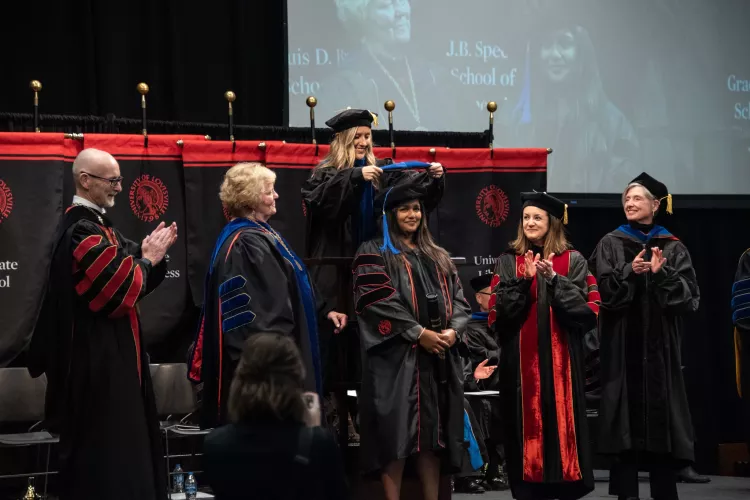Across disciplines, UofL is developing expertise to help sex trafficking victims
October 2, 2024She could be the girl next door. With strawberry blonde hair and a lightly freckled face, Cotie is 26 but could pass for half-a-dozen years younger. It’s only when you talk with her that you learn Cotie – who asked to be identified only by her first name – has lived an uncommon life. She is a survivor of sex trafficking.
Beginning at age 19, Cotie was pimped out or walked the streets, offering sex for money for her next high. She was repeatedly physically and emotionally abused and sexually assaulted.
Cotie didn’t have help to avoid what she and others like her call “the life,” but the University of Louisville is working to give victims like Cotie assistance to leave that life behind or elude it altogether.
Sex and labor trafficking combined are, as defined by the National Human Trafficking Hotline, “a form of modern-day slavery in which traffickers use force, fraud or coercion to control victims for the purpose of engaging in commercial sex acts or labor services against their will.” Nationally, more than 8,500 cases of human trafficking were reported in 2017. Almost 6,100 involved sex trafficking, but researchers warn that as many as two-thirds of cases are never reported.
Several departments on UofL’s Belknap and Health Sciences Center campuses began working a few years ago to address human trafficking through the university’s quadruple enterprises of education, research, clinical care and community engagement. Today, the university is leading the way nationally in educating health care providers to recognize signs of trafficking.
UofL’s approach to studying the problem is truly transdisciplinary. Faculty members in social work, criminal justice, engineering, law and medicine are investigating various aspects, from the mental and physical health of victims to the routes and logistics of the actual trafficking.
Cotie didn’t have access to most of UofL’s services until she was leaving the life. But if she had, it could have made a world of difference.
Read more about Cotie's journey and UofL's work to curb sex trafficking here.



